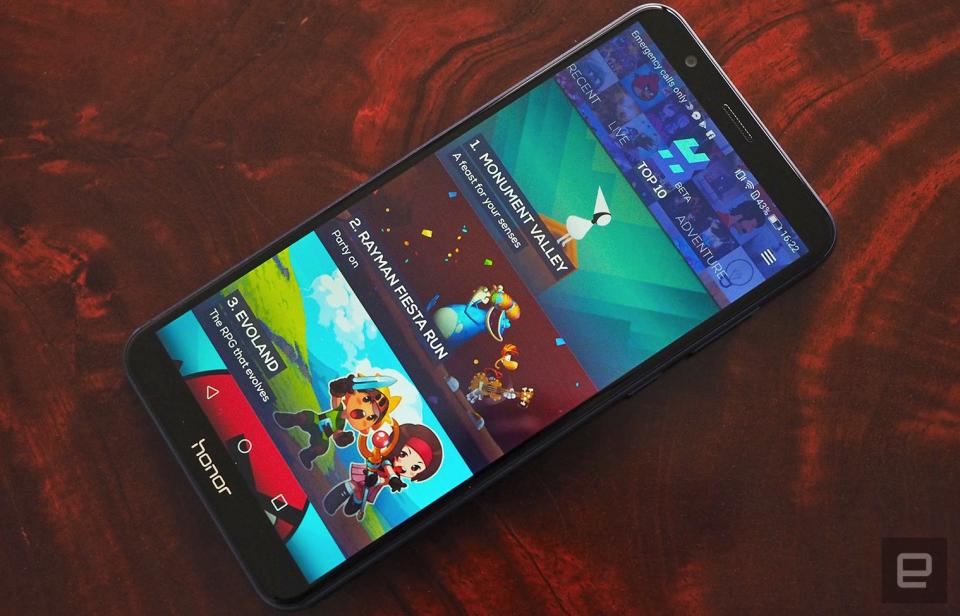A cloud service for mobile gaming isn't as dumb as it sounds
Hatch adds online multiplayer to single-player titles.
We're reached a point where cloud gaming finally makes sense. The technology that exists now is beyond what was available to famous failures like OnLive and many others you could say were ahead of their time. Servers, the consoles and computers we have in our homes, and the speedy internet connections that feed them are now capable of mimicking the experience of playing a game stored on your local machine. Big companies like Sony and NVIDIA have gotten involved over the past few years for just this reason, and one upstart believes it's spotted an unfilled niche in the market. What Spotify has done for music and Netflix for TV, Hatch wants to do for mobile gaming.
Hatch is a cloud gaming service for your phone, very much in beta at this point and currently available on Android in 16 European countries including the UK. Your first reaction to this idea, if you think like me, might be: But... why? Is it not just an over-engineered solution to a problem that doesn't really exist? Is storage space so precious we need to host mobile apps in the ether? These were the questions bouncing around my head when I first came across Hatch, but the method of delivery is just part of the picture. What Hatch really wants to be is a champion of premium mobile games and creator of new social ways to play them.
Free-to-play games are more prevalent on mobile than any other platform, but Hatch more or less ignores this vast catalog. Instead, the games it's adopted to date either have an upfront price attached or offer a basic, demo-esque experience ahead of in-app purchases to unlock the full game. No money changes hands on Hatch, though. You can stream the complete version of every game for free, though Hatch doesn't like the word "free" since you are paying, to some extent, by putting up with ads dotted around the UI. They're hardly intrusive (at this stage, anyway), but eventually Hatch will offer a subscription tier that strips the ads away.
Some special features will also be reserved for paying users, such as a kids mode with parental controls. Hatch is still figuring out exactly what its subscription option will look like because it won't come into play until the app is fully developed.
I'm not an avid mobile gamer, but there are several titles even I recognize on Hatch's books, such as Monument Valley, Pac-Man Championship Edition DX, Rocket Riot and Mini Metro. A new partnership with Square Enix Montreal means Hitman GO, Lara Croft GO, Deus Ex GO and Hitman Sniper will arrive on Hatch later this year, too.

There are just over 100 games currently playable on the service. You'd think big developers might shy away from something like Hatch: Every player is someone that may've otherwise bought these games from the Play Store. But that hasn't stopped studios like Ubisoft, Bandai Namco and Ustwo from pledging their support (another big name will be added to that list in a week or so, I'm told). The cloud service itself was spun out of and is still majority owned by Rovio, which knows a thing or two about mobile gaming. Naturally then, Angry Birds and Bad Piggies have a home on Hatch.
Developers showing faith in Hatch, not to mention wanting a cut of ad/subscription revenue, is one thing. Execution is the other part of the puzzle. And if you're still struggling to see the value in a cloud streaming service for mobile games, actually playing around with Hatch is where it all seems to come together. For lack of a more eloquent phrase, it's slick AF.
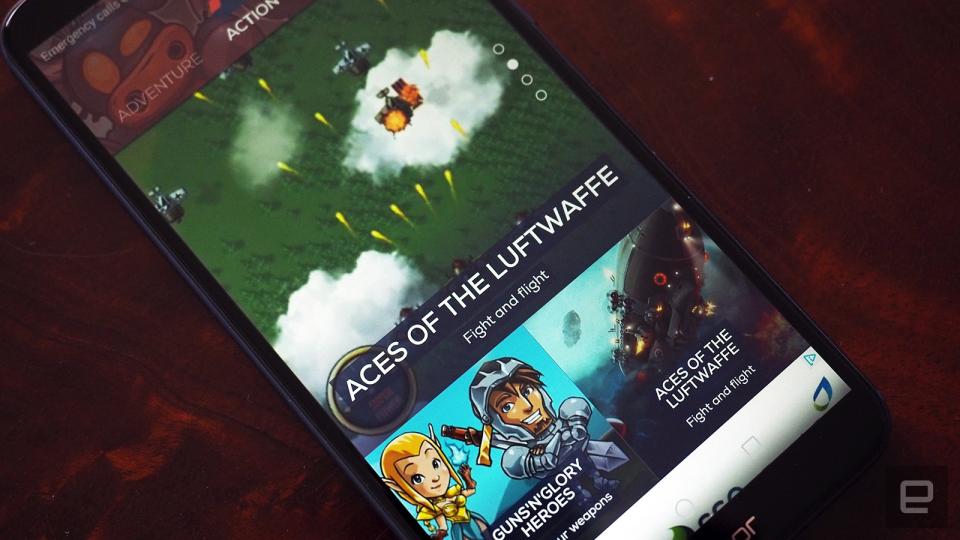
For starters, the main UI is colorful and inviting. You swipe left and right between genre pages, with animated banners up top and visual cards for the different games beneath. There's also a page that lists your recently played games and one for your social feed (more on that later). Tap a game card and you'll see a trailer of sorts above a short description of what it's all about. Hit that play button and after a short loading time you're playing the game as if you'd downloaded it to your device. That's how a cloud gaming service is supposed to operate, of course, but the journey there is worth a mention.
The real light bulb moment, though, is when you start exploring Hatch's social features. At any point during your play session, you can jump into the Hatch menu and invite a friend to join your game. Up to four friends, in fact. Not only is there built-in voice chat, but both of you can actually play the game together -- multiplayer for games that don't have multiplayer.
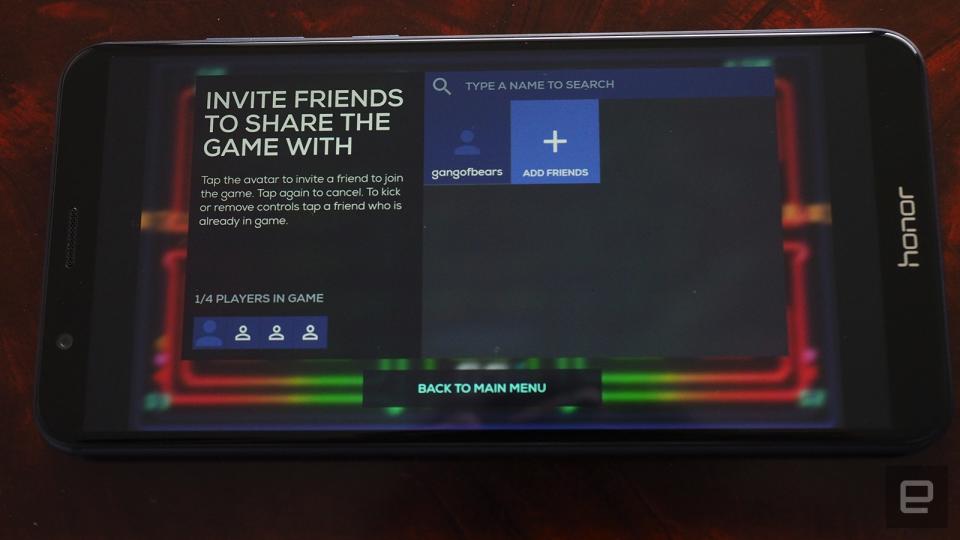
During a quick session of OK Golf, for example, a colleague and I were chatting away and taking alternate shots, as if we were sitting on a couch passing one phone between us. According to Hatch, this isn't even hard to do, technically speaking. Since the game is running in the cloud, the servers just push the same instance to both devices. In other words, the game has no idea you're playing it on two different phones. Also, as the host, I have the option of locking my friends' controls if I start seeing too many wayward shots. Multiplayer doesn't have to mean taking turns, though. You could invite a friend in to advise you on how to beat a Bridge Constructor Medieval level, or just have them watch you speedrun Badland while you shoot the shit.
In addition to sharing your exploits with friends live, you can also clip special moments. Hatch records your gameplay on a 45-second loop. Do something worthy of remembering you can jump into a simple video editor, complete with cropping and annotation tools. You can then share this moment on Hatch's internal social network or on Instagram. The Hatch feed is actually a lot like Instagram, with captions, likes, comments and the ability to follow other users.
A post shared by Hatch (@playhatch) on Feb 5, 2018 at 6:51am PST
These features are what make Hatch feel like more than the sum of its parts, more than the catalog of titles. Mobile gaming is, for the most part, a solitary experience. Hatch opens this up, and it's still early days. The team has broadcasting (à la Twitch) on its roadmap, so players can livestream to anyone who wants to watch, not just who they invite into their games. "Technically speaking, it's super easy," Hatch co-founder and Head of Content Vesa Jutila told me, since the whole system is built to stream the same game instance to multiple devices. The challenging part is delivering it to a player a million people can tune in to.
Competitive and co-op multiplayer is also a priority, but first Hatch wants to finish developing an over-the-top lobby system that make it as seamless as possible. Something a bit like Xbox Live parties. "One of the powerful things about a service like Hatch is the fact that you can design the multiplayer game experience across all the games at a platform level, instead of designing it for every individual game one-by-one," Jutila said. He believes it could even change how developers make games, giving them more time to craft great multiplayer without worrying about the nuts and bolts of putting people together in the same session. Hatch will handle that.
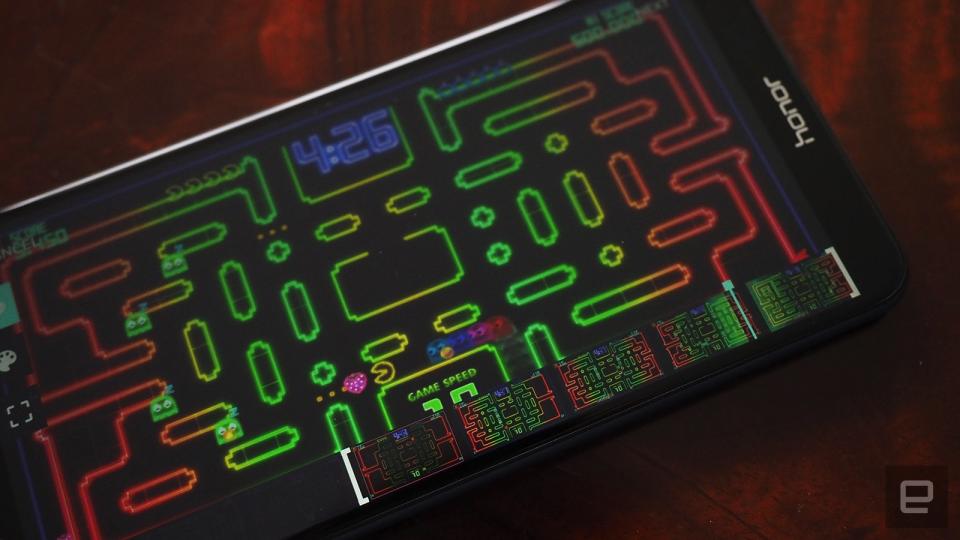
Before all these extra social features are realized, though, Hatch still has a lot of polishing to do on the core experience. As much as I came round to the idea, there's still a fair few glitches to iron out. These range from the occasional lag spike that disrupts the flow of a game to voice recording for game clips straight up not working. During my playtests, I found that if I hosted a game, I could hear people I invited clearly on voice chat, while they heard a patchy, robotic voice from my end. Swap over and I would sound clear while the new host became the Dalek. Two-way audio is one of the harder things to get right, I was told, because of the different ways different Android devices handle sound.
Hatch is still very much in development at this stage. Finland was the first country to have at the open beta last August and since then it's expanded to a total of 16 European countries. For now the plan is to settle in Europe, stick to Android, complete development and then reach other countries and platforms. I wonder whether Apple would allow Hatch on iOS since it encourages people to stream rather than buy games. But then again the same could be said for Android, and yet Hatch is featured on Google's Early Access program.
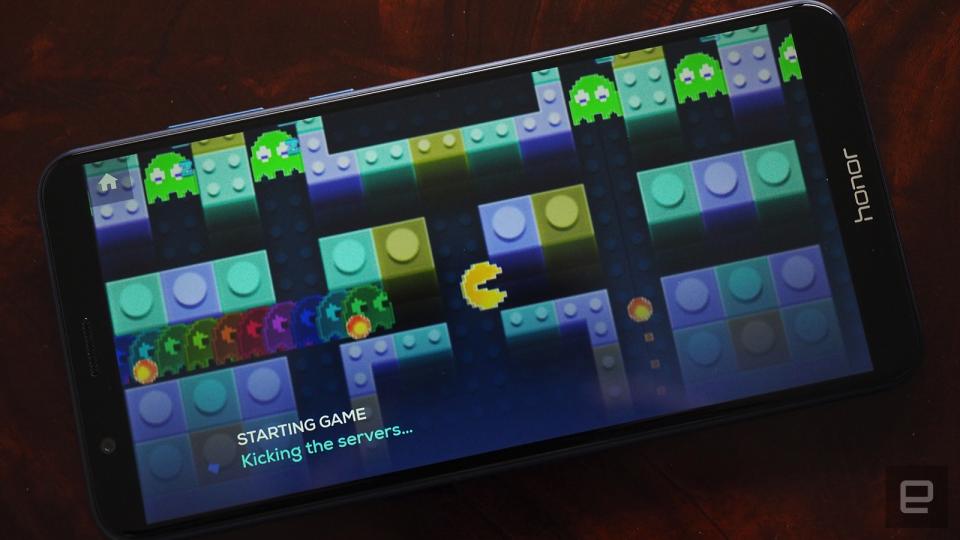
My crystal ball won't reveal whether mobile cloud gaming will ever be a mass market thing. "Once you offer an on-demand way to consume entertainment, adoption can happen super fast. When something starts when you press play, you never want to go back," Jutila told me. "With consumers, as always, getting them to move to the next paradigm requires time," he added. "It's a totally new experience and before you've tried it and you understand what it is, it's very difficult to explain."
Assuming you can get a solid catalog together, perhaps the sheer convenience of no downloads or updates will be enough. A potential problem is that Hatch isn't in control of 'the last mile,' by which I mean a crappy connection and resulting sub-par experience might quickly turn you off. But 5G is just around the corner, promising better speeds and lower latency than existing tech.
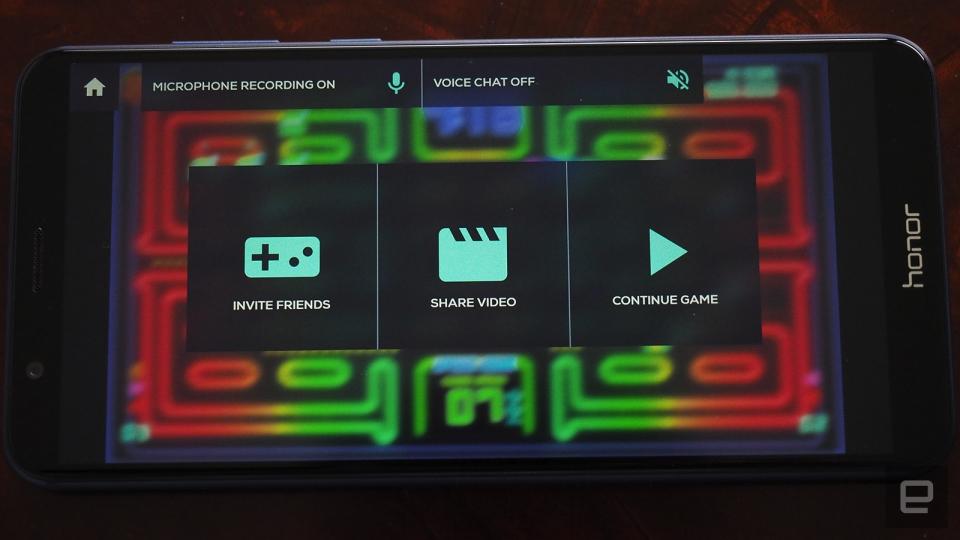
"Yes, there will always be some possibility that you have a crappy network connection and for that moment, there's some glitches in the game," Jutila said. "So be it, because all in all the on-demand model for gaming is way more powerful and it enables this totally new kind of social experience that wouldn't be possible without it." He compares it to an odd buffering incident you might suffer while watching Netflix. It's not ideal, but you'd rather that than go to a store to buy a DVD.
If you want to game on the go, you've also gotta think about the damage it's doing to your data allowance. While there's still room for optimization, according to Jutila, in my experience the app used the best part of a gig per hour of playtime. All that said, if there's an appetite for cloud gaming on the small screen, it's going to be a service like Hatch that satiates it. Because it's not even really about the streaming -- it's about turning the introverted nature of mobile gaming into a more social, console-like experience.

